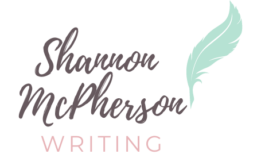I know what you’re thinking already – how can you write an effective and memorable story in only 101 words? The answer is, very easily!
I discovered the website 101 Word Short Stories several years ago when I was researching websites that published short stories without charging a submission fee. I was a bit taken aback by the concept of the micro short story, but decided to give it a try. During this time period, I was in graduate school, and writing these short stories helped me practice tightening up my writing. I learned to eliminate unnecessary words and I believe my writing as a whole benefited from it.
The first 101 word story I drafted was called “My Masterpiece” and it was inspired by my daughter, who is an avid artist. In the story, I looked at a brief moment in time and took the reader directly there.
101 word stories pack a punch that novels and longer short stories can’t. You’re not given endless word and page counts; you have one hundred and one words to get your point across to your reader.
As a writer, you need to tell a compelling story in around .5% of the amount of words in a novel, but how do you do this effectively? Check out my tips below!
- Get to the Point: There is no time for build up or flowery adjectives. You don’t have the word budget to describe everything in complete detail. You have to give your reader as much as they need and not any more – save your words for what is important. Imagine what moment you want to capture in your mind and eliminate everything leading up to it. Drop the reader right in the action.
- Evoke Your Reader’s Emotions: The best short stories evoke strong emotions in the reader. With a micro short story, you don’t have their attention for very long, so use what words you have to make an impression on them. Even if you’re evoking anger or sadness, you’re getting a reaction out of your reader and making what you wrote memorable.
- Write First, Edit Later: Don’t immediately start drafting your story with the goal to hit 101 words in your first draft. Get your story down and then go back to edit. It’s so much easier to take out words than it is to add them, especially in this type of scenario. I wouldn’t recommend writing a 250 word story and trying to edit it down from there, but aim a little bit higher than 101 words so you can sit back and see what words you can/cannot keep.
- Don’t Be Afraid of the Cliffhanger: I feel like these micro stories are great opportunities to leave a bit of a cliffhanger at the end. The reader hasn’t had 3000+ words to get attached to your characters to then be left in a lurch at the end when you don’t give them a satisfying ending. My short story, The Meter, closes with the sentence “pull the trigger,” uttered by the main character in the story. The reader doesn’t know what trigger is being pulled or what the ramifications of that would be, but they’re given just enough information to come up with their own conclusions as to what happened.
So, your homework: write a 101 word short story and submit it to the website I shared above. Let me know if they publish it!
Trying to limit yourself to such a small amount of words can be intimidating, but it is a really good exercise in learning how to be efficient and effective with your words.


The 101 Word Short Story is such a neat idea! I’ve been looking for a fun way to practice editing down my insanely wordy writing.
Right now I’m reading Everybody Writes by Ann Handley and just finished a chapter on the importance of being concise. This post reminded me of something she says in her book.
“Brevity doesn’t mean bare bones or stripped down. Take as long as you need to tell the story. The notion of brevity has more to do with cutting fat, bloat, and things that indulge the writer and don’t respect the reader’s time. Keep it tight.”
Sarah, I love that quote. It’s so true! I’m going to need to check out that book. Try a 101 word story and let me know how it goes 🙂